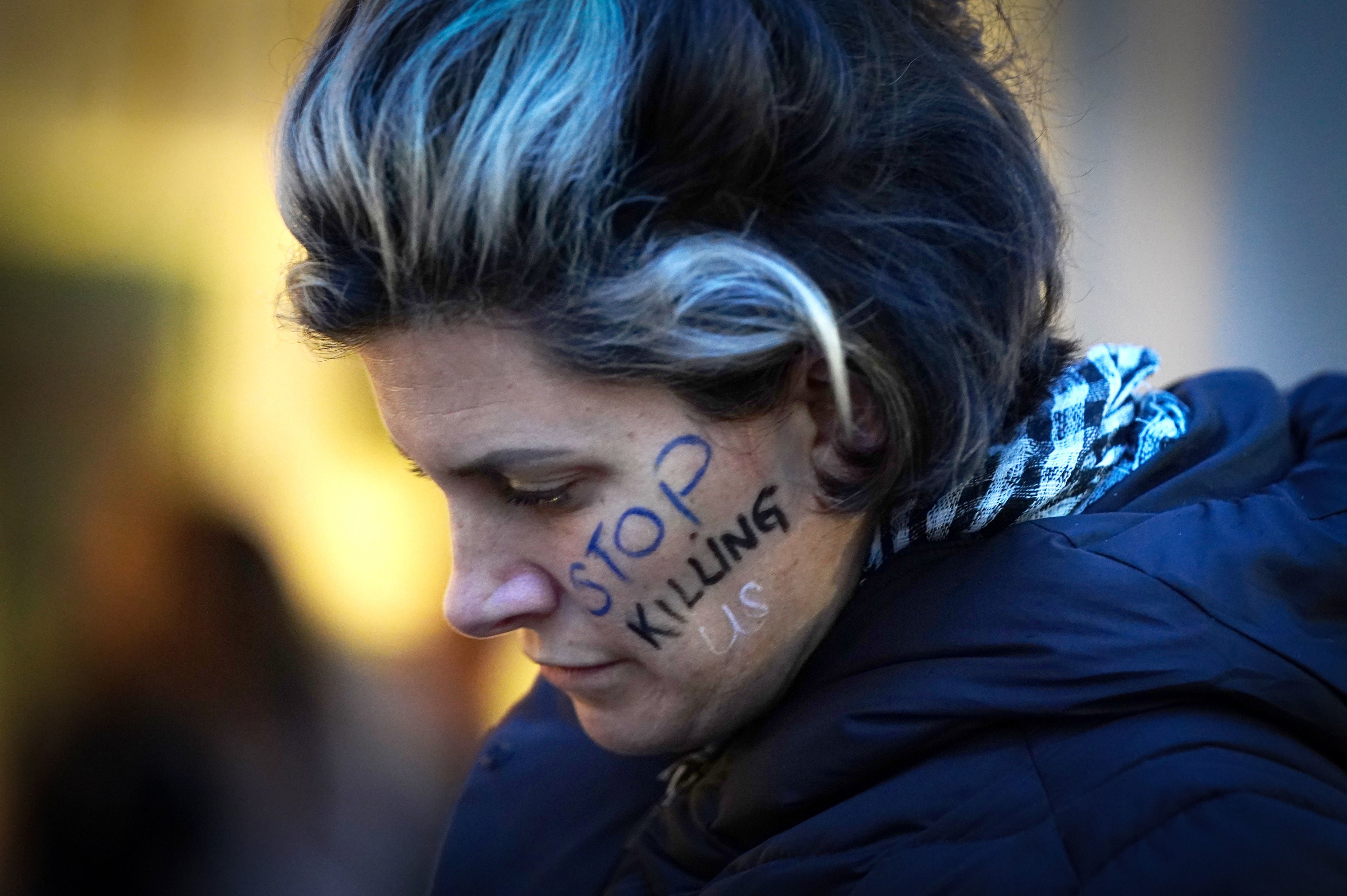Women and girls are being failed by bias and stereotyping in our criminal justice system
I’ve spoken to countless rape survivors who felt that their credibility was being tested and challenged before any consideration of the actions and behaviour of the suspect


Your support helps us to tell the story
From reproductive rights to climate change to Big Tech, The Independent is on the ground when the story is developing. Whether it's investigating the financials of Elon Musk's pro-Trump PAC or producing our latest documentary, 'The A Word', which shines a light on the American women fighting for reproductive rights, we know how important it is to parse out the facts from the messaging.
At such a critical moment in US history, we need reporters on the ground. Your donation allows us to keep sending journalists to speak to both sides of the story.
The Independent is trusted by Americans across the entire political spectrum. And unlike many other quality news outlets, we choose not to lock Americans out of our reporting and analysis with paywalls. We believe quality journalism should be available to everyone, paid for by those who can afford it.
Your support makes all the difference.Bias towards women and girls and damaging gender stereotypes exist across society and are particularly acute in the criminal justice system. If we are hoping to build a world which is safer for women and girls, we must break the bias in an antiquated justice system.
Unfortunately, the litany of recent events involving the Metropolitan Police – from the murder of Sarah Everard a year ago, to the more recent release of the Operation Hotton investigation, which shone a light on the abhorrent behaviour of some officers – has hugely impacted the trust and confidence that women, and the public at large, have in the police, and will certainly impact their confidence in reporting.
In my role as London victims’ commissioner, I continually meet women and girls who feel they have been failed by the justice system.
It is important to remember that each time a victim comes away from interacting with the police or a prosecutor feeling this way, it is not just them who builds a negative perception of the police and our criminal justice system – it is also their family, friends and wider social circles. It also has influences whether victims would report in the future, and whether they would advise others to do so.
A central issue we need to address in the justice system is around belief and “credibility” of women. Too many women find themselves disbelieved or dismissed when reporting a crime, and these dismissals are often rooted in outdated myths and stereotypes – including an antiquated societal view that women regularly lie about rape out of shame, embarrassment or retribution.
This ingrained belief is evident from countless rape survivors I have spoken to, who felt that their credibility was being tested and challenged before any consideration of the actions and behaviour of the suspect.
I have seen too many cases where police and prosecutors have assessed the victim’s credibility on factors such as choosing to walk home instead of getting a taxi, the amount of alcohol they consumed, not screaming loudly enough during the attack and even not immediately telling friends or family what happened.
The most common credibility issue is inconsistencies in accounts given by a victim – these are nearly always interpreted as evidence that the victim isn’t trustworthy, despite evidence showing memory and recall are damaged after traumatic events.
Linked to these belief issues is the justice system’s failure to take reports of “lower level” or less serious offences seriously. As mentioned, we know that perpetrator behaviour often escalates and by the time they commit the most serious offences they will have built a pattern of behaviour, which provided key opportunities for identification and intervention.
This was, heartbreakingly, the case for Sarah Everard as it was revealed that less serious allegations against her killer had not been acted upon appropriately.
When women report some of these “lower level” incidents they appear to be dismissed or have the behaviours minimised. I have heard multiple examples of women trying to report stalking behaviours, only to be told it was probably a coincidence or the victim had misinterpreted the situation.
Equally, with more covert and complex forms of domestic abuse, such as coercive control, police officers have demonstrated a lack of understanding and the CPS have demonstrated a lack of willingness to charge. In both offences, escalation of behaviour is significantly likely and early intervention is one of the best remedies.
Many crimes against women and girls – such as stalking, domestic abuse and sexual offences – are crimes of repetition. There are clear patterns in the behaviour of offenders.
Even more worryingly, when a perpetrator knows a report has been made but ultimately nothing comes of it, they are emboldened, and their offending behaviour will likely escalate and intensify. The bias, stereotyping and attitudes which underpin the justice system and lead to cases being dropped are therefore ultimately impacting society’s ability to keep women and girls safe.
While we have a very long way to go, I am pleased to say that there is good work happening. There are people trying to build the justice system that women and girls deserve. For example, we have at long last begun to recognise that rape myths and stereotypes are damaging and should have no bearing on criminal cases.
To keep up to speed with all the latest opinions and comment sign up to our free weekly Voices Dispatches newsletter by clicking here
Following my London Rape Review in 2019, which highlighted this issue, the Crown Prosecution Service developed guidance for their prosecutors which looked specifically at rape myths, stereotypes and the impact of trauma on the brain. The guidance is robust and provides workable examples of how rape myths can influence decision making in cases.
The Metropolitan Police are also part of Operation Soteria, a Home Office-funded project which was developed by the Mayor’s Office for the Policing and Crime following my London Rape Review. The project seeks to transform rape investigations. Most notably, the work is trying to refocus the system away from disproportionate scrutiny of victims and towards the behaviours, actions and attitudes of offenders.
Deciding to report to the police and pursue justice is a big decision for anyone and in the current climate, requires significant determination and resilience. Cases are taking too long to progress, with over 15,000 cases backlogged in London Crown Courts. I have seen examples of rape cases taking five years to reach a conclusion.
This is also against a backdrop of unacceptable conviction rates, with only 1.3 per cent of cases ending in conviction. Despite these challenges, I meet women every day who are staying in the justice system in the hope of stopping perpetrators doing the same to someone else.
For any women brave enough to come forward to report, we owe them a justice system free from bias or prejudgment – one that can offer swift, timely justice.
Claire Waxman is London’s first victims commissioner
Join our commenting forum
Join thought-provoking conversations, follow other Independent readers and see their replies
Comments